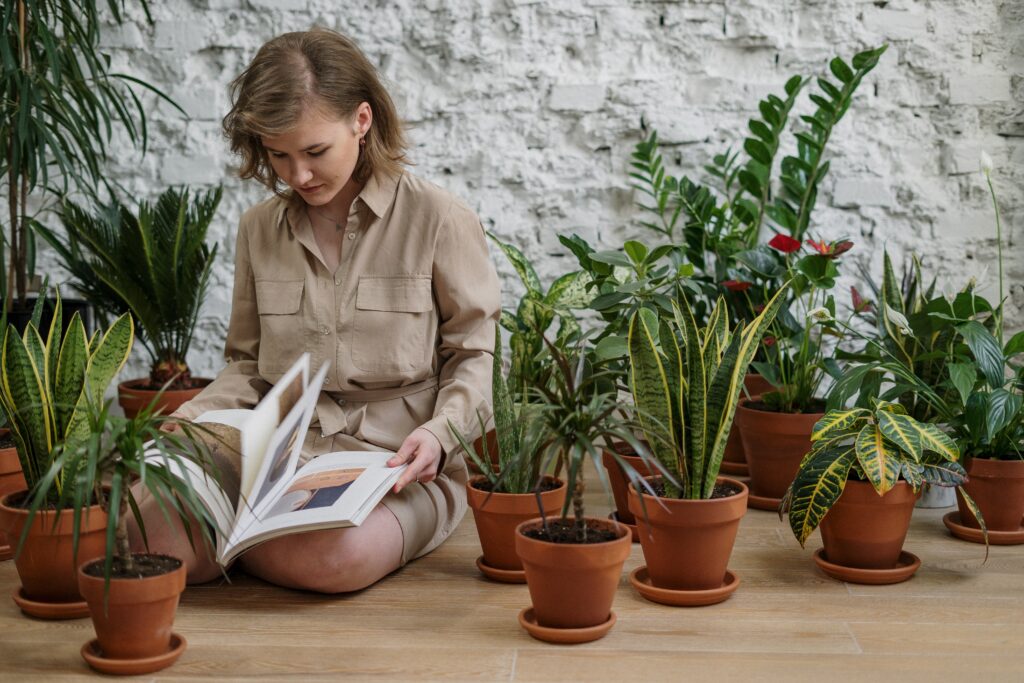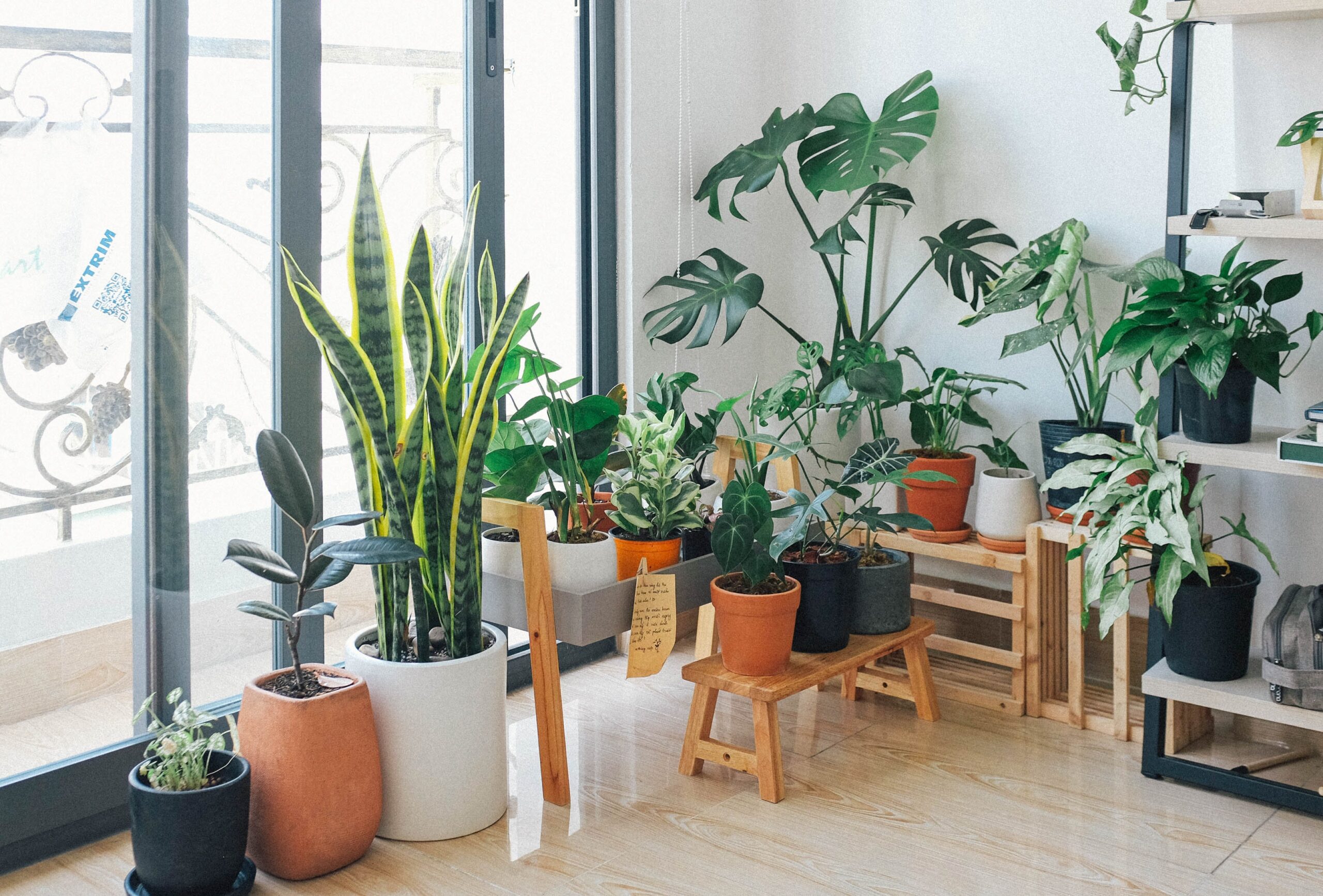Indoor plants have been gaining popularity in recent years as more people realize the numerous benefits they offer. Not only do they add to the aesthetic appeal of a room, but they also help to purify the air, boost productivity, and reduce stress levels. In this article, we will discuss some of the benefits of indoor plants and provide tips on how to care for them.
Benefits Of Indoor Plants
Apart from serving as a decoration piece and looking cute in your household, indoor plants seem to possess some unignorable benefits for your home, such as:
1. Improved Air Quality:
Indoor plants can help to purify the air by removing harmful toxins and pollutants. They absorb carbon dioxide and release oxygen, which can improve the air quality in your home or office. Some plants are particularly effective at removing pollutants such as benzene, formaldehyde, and trichloroethylene. Examples of such plants include the spider plant, peace lily, and Boston fern.
2. Increased Productivity:
Studies have shown that having plants in the workplace can increase productivity and creativity. Plants can help to reduce stress levels and improve mood, leading to better concentration and focus. They can also help to create a more relaxed and comfortable environment, which can be particularly beneficial for employees who spend long hours sitting at a desk.
3. Health Benefits:
Indoor plants can offer a range of health benefits. For example, they can help to reduce symptoms of respiratory illnesses such as asthma and allergies. Plants can also help to reduce stress levels and promote a sense of calm and relaxation, which can have a positive impact on overall health and well-being.
4. Aesthetic Appeal:
Indoor plants can add to the aesthetic appeal of a room, providing a natural and organic element to the décor. They can help to create a calming and inviting environment, making a room feel more welcoming and inviting.

How To Care For Indoor Plants
Keeping indoor plants serves as a hobby and they also require care and attention, keeping the following things in mind you can provide just the right condition for your indoor plant to bloom:
1. Choosing The Right Plant:
When choosing an indoor plant, it is important to consider the level of light and humidity in your home. Some plants require bright, direct sunlight, while others prefer low-light conditions. Similarly, some plants require high levels of humidity, while others can tolerate drier air. It is also important to consider the size of the plant and how much space it will require.
2. Watering:
Proper watering is essential for the health of indoor plants. Overwatering can lead to root rot, while underwatering can cause the plant to wilt and die. The frequency of watering will depend on the type of plant and the level of humidity in your home. As a general rule, it is better to underwater than overwater, and it is important to allow the soil to dry out slightly between watering.
3. Soil:
Choosing the right soil is important for the health of indoor plants. Most plants prefer well-draining soil that is rich in nutrients. It is also important to choose a pot that allows for adequate drainage, as standing water can lead to root rot.
4. Light:
Proper lighting is essential for the health of indoor plants. Most plants require some level of sunlight, although some can tolerate low-light conditions. It is important to place plants in a location that receives adequate light and to rotate them regularly to ensure even growth.
5. Temperature And Humidity:
Indoor plants prefer temperatures between 60 and 75 degrees Fahrenheit, although some plants can tolerate higher or lower temperatures. It is important to avoid placing plants near drafty windows or vents, as this can cause stress to the plant. Humidity levels can also be important, particularly for tropical plants that require high levels of humidity.
In conclusion, incorporating indoor plants into your living or work space can greatly enhance your physical and mental well-being. With proper care and consideration for their specific needs, you can reap the benefits of improved air quality, increased productivity, and a more aesthetically pleasing environment. So go ahead and add some greenery to your surroundings, and enjoy the many advantages that come with it.

